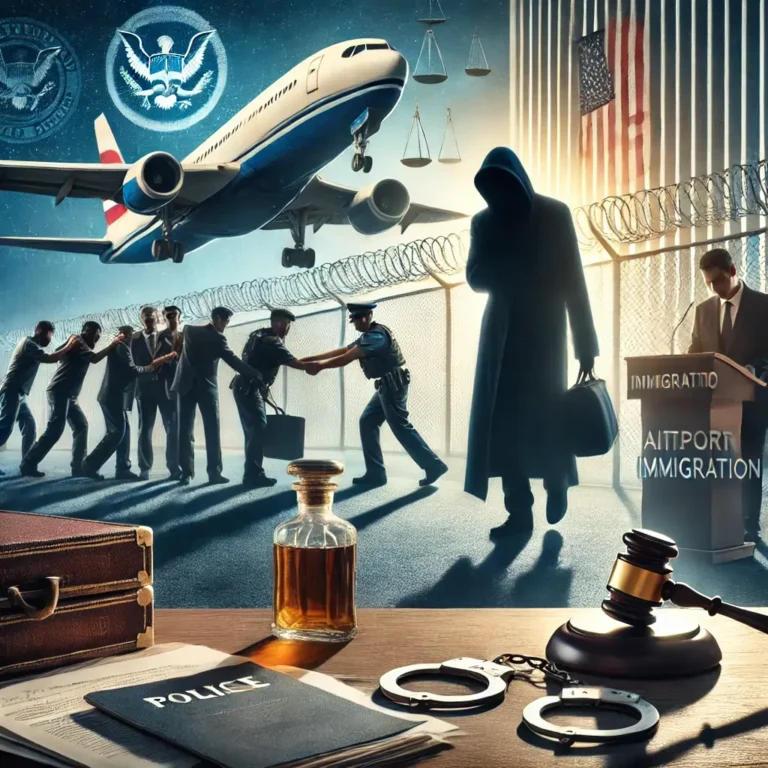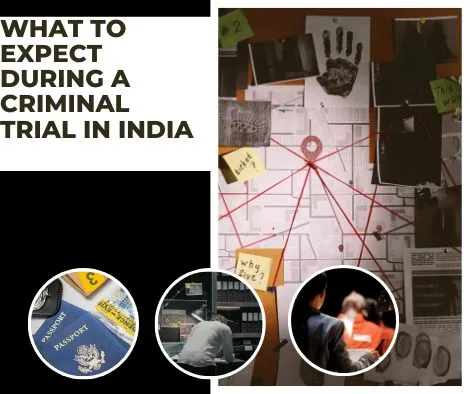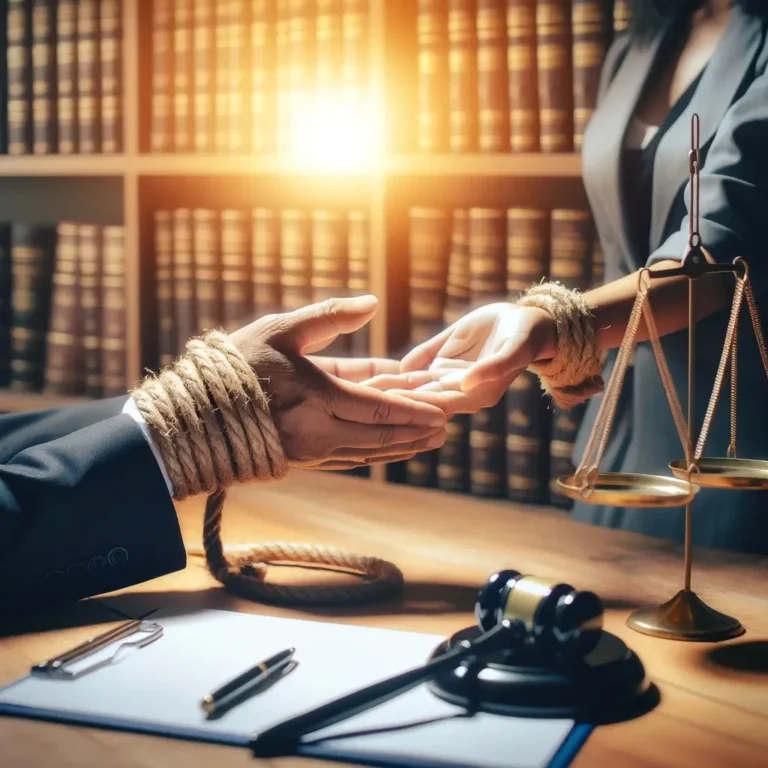Understanding ‘Donkey’ Immigration and Legal Protection for the Accused
In recent years, the issue of ‘Donkey’ immigration has garnered significant attention in the context of illegal migration from India to the United States. This term is commonly used to describe the practice of individuals illegally entering the U.S. through dangerous and unauthorized routes, often facilitated by human traffickers. While many such individuals seek better opportunities, the legal consequences of their deportation back to India can be severe, leading to FIRs and criminal cases against them and those who assisted in their migration.
The Deportation and Legal Ramifications
The United States, under its strict immigration policies, actively deports individuals who enter the country illegally. Many Indian nationals caught in this process are sent back to India, where they often face legal action under various provisions of the Bhartiya Nyay Sahita (BNS), the Passport Act, and other relevant laws. Upon arrival, authorities may register FIRs against them, charging them with offenses such as cheating, forgery, and human trafficking-related violations.
Key Legal Provisions Under Indian Law
- The Passport Act, 1967: Unauthorized travel and possession of forged documents can lead to penalties under this Act.
- Section 316 BNS (Cheating and Dishonesty): Used against individuals accused of deceiving authorities or using fraudulent means to migrate.
- Section 327 BNS (Forgery and Using Forged Documents): If false documents are used for migration, strict penal provisions apply.
- The Immigration Act, 1983: This Act regulates migration and penalizes unauthorized travel.
- BNSA Considerations: With the new legal framework in India, stricter measures are in place to curb illegal migration and human trafficking.
Protection of the Accused: Legal Rights and Remedies
As an advocate, it is crucial to ensure that the accused individuals are provided fair legal representation and are protected from undue harassment. The following steps can be taken:
- Legal Representation: Every accused has the right to legal aid and must be represented effectively before the court.
- Challenging the FIR: Many FIRs are filed under pressure or as a deterrent. These can be challenged through legal mechanisms such as quashing petitions under Section 528 of BNSS
- Bail Applications: Immediate legal steps should be taken to secure bail, ensuring that the accused do not suffer prolonged detention.
- Human Rights Considerations: Courts can be urged to consider humanitarian grounds, particularly in cases where individuals were victims of trafficking.
- Defending Against False Implications: Many deported individuals are falsely implicated as traffickers, while they were merely victims. Proper evidence gathering and defense strategies must be employed.
Conclusion
While illegal immigration remains a significant challenge, it is equally important to ensure that individuals who face deportation are treated fairly under the law. As a legal representative, the focus must be on protecting the rights of the accused, challenging unjust FIRs, and ensuring that due process is followed. In the evolving legal landscape, awareness and strong legal defense are key to safeguarding the rights of those facing such allegations.
General Questions
-
What is ‘Donkey’ immigration?
‘Donkey’ immigration refers to illegal migration through unauthorized and often dangerous routes, primarily from India to the USA. -
Why is it called ‘Donkey’ immigration?
The term is slang used to describe the long and arduous journey taken by illegal migrants through unsafe routes. -
What are the main reasons people migrate illegally to the USA?
Economic opportunities, family reunification, better living standards, and escaping persecution are some of the key reasons. -
How do people illegally enter the USA?
Common methods include forged documents, crossing borders through Mexico, and using human traffickers. -
What happens when an illegal migrant is caught in the USA?
They are detained, face legal proceedings, and are often deported back to their home country.
Legal Consequences in India
-
What legal actions are taken against deported individuals in India?
FIRs can be registered under BNS, the Passport Act, and the Immigration Act for illegal migration. -
Which laws in India deal with illegal migration?
- The Passport Act, 1967
- The Immigration Act, 1983
- Sections 316 & 327 BNS
-
Can a deported person be arrested in India?
Yes, if they are found guilty of forging documents, human trafficking, or violating immigration laws. -
Is illegal migration considered a criminal offense in India?
Yes, depending on the case, it can lead to imprisonment, fines, and legal action under multiple provisions. -
Can the police register an FIR against a deported individual?
Yes, based on their immigration history, forged documents, or human trafficking charges.
Legal Rights and Defense
-
What legal options do deported individuals have?
They can apply for bail, challenge the FIR, and seek legal representation for a fair trial. -
How can an FIR be quashed?
Through a petition under Section 482 CrPC if the FIR is found to be baseless or malicious. -
Can a person be falsely implicated in a human trafficking case?
Yes, sometimes deported individuals are wrongly labeled as traffickers instead of victims. -
What is the punishment for forging travel documents?
Under BNS, forgery can result in imprisonment and fines. -
Can a deported person re-enter the USA legally?
Only after fulfilling legal requirements, including visa processing and clearance of any prior offenses.
Protection of Accused
-
How can a lawyer help a deported individual?
By representing them in court, challenging false charges, and ensuring legal rights are upheld. -
Can a deported person apply for asylum in the USA?
Yes, but it depends on the case and whether they meet the eligibility criteria. -
What are the humanitarian grounds for legal relief?
Victims of human trafficking or those facing persecution may qualify for legal protection. -
Can someone sue an agent or trafficker for fraud?
Yes, legal action can be taken against human traffickers and fraudulent agents. -
Is deportation a lifetime ban from the USA?
Not necessarily; the individual can reapply for legal entry after a set period, depending on the violation.
Preventive Measures and Awareness
-
How can people avoid falling victim to human traffickers?
By verifying travel agents, following legal immigration procedures, and avoiding fake documents. -
What role do embassies play in deportation cases?
They provide legal assistance and help with documentation and appeals. -
Are there rehabilitation programs for deported individuals?
Some NGOs and government agencies assist deported individuals with resettlement. -
How does the Indian government track illegal immigrants?
Through immigration records, travel documents, and intelligence cooperation with other countries. -
Can families of deported individuals take legal action?
Yes, they can seek legal aid, appeal against wrongful charges, and approach courts for justice.
Miscellaneous
-
What is the success rate of challenging FIRs in deportation cases?
It depends on the evidence, legal representation, and grounds of the case. -
Do all deported individuals face FIRs in India?
No, only those involved in illegal activities, forgery, or trafficking may face legal action. -
Can deported individuals seek jobs in India?
Yes, unless they are blacklisted or legally barred from employment. -
How long does a legal case related to deportation last?
It varies, but can take months or even years, depending on the complexity. -
What should someone do if they are facing false allegations?
Seek immediate legal counsel, collect evidence, and challenge the charges in court.
















